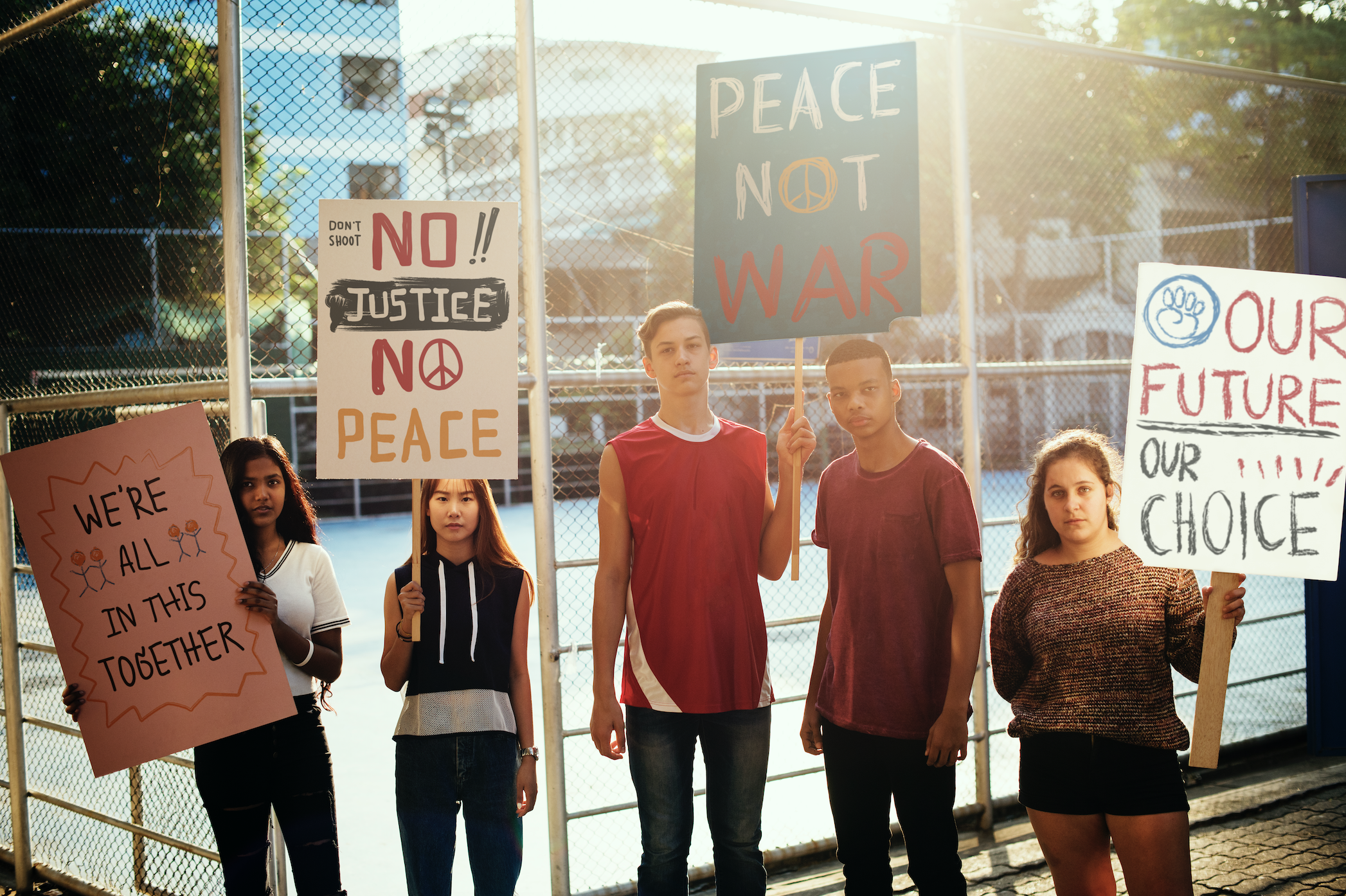
Escaping the Battle of Words and Embracing the Battle for Hearts
Our world today is in combat over language. Two sides of any issue vie for the best words that make any opposing view seem, well…wrong. Everywhere we look we see mantras, slogans, and mottos that draw readers in and make them want to side with their cause without even really understanding the deeper ramifications. Because we have short attention spans, we only have time for soundbites. That’s part of our problem. The American public is often superficial today, especially on social media where we are far better at reacting than reflecting.
“A wealth of information creates a poverty of attention,” Herbert Simon once said.
Politicians are the worst at this. They consult with marketers to find the perfect phrase that would be impossible to disagree with and, in fact, would make you appear immoral if you didn’t vote for them. This is how candidates jockey for position against their opponent.
Let’s examine why this is a problem in everyday life.

Be Careful You’re Not Manipulated in the Battle of Language
One prime example today is a cause most of us agree with, but that’s been exploited by people unwittingly along the way: “Black Lives Matter.” Like you, I am for this cause. I’ve posted blogs, participated in protests, hosted podcasts, and donated money for the cause of racial justice. I’ve done it as early as my teen years back in the 1970s. I believe in racial equality for everyone.
But the phrase and the cause are being manipulated.
Two young women were asked to scrub “BLM” (Black Lives Matter) off of a federal building in Washington DC after a day of protests. Another woman drove by in her car, rolled down her window, and questioned what they were doing and why. They responded, “Well, it’s a federal building, and graffiti is not allowed on a federal building, so we’re cleaning it off.” (The truth is, writing graffiti on a government building is a federal offense.) The woman retorted, “Oh, so you don’t believe Black Lives Matter?” The two ladies replied, “No, of course we believe Black Lives Matter. It’s just that this is a federal building.” The woman in the car then replied, “You’re disgusting,” and drove off.
Do you see the faulty reasoning?
It’s likely those two young ladies scrubbing the graffiti off the building had marched in the protests the weekend before—but the quick look this woman gave them in her “drive-by” launched an inaccurate narrative inside her head. It happens every day.
Back in the 1970s, social media didn’t exist. The way millions of people personally broadcast a message they believed in was a bumper sticker on their car. We saw them everywhere. Some cars had multiple bumper stickers. They were “all the rage.”
If we had embraced our current narrative back then, it would lead us to conclude: if you don’t have a “cross” or a “fish” bumper sticker on your car you must not be a real Christian. Or, if you don’t have an “Anti-Vietnam” bumper sticker on your car, you must be pro-war. Or, if you don’t protest nuclear bombs or advocate for climate change on your bumper, you must not be for justice. So sad. So misguided. So superficial.
Winning the Battle for Language
Today, social media is a lightweight method to participate in anything. The weakest of people can hide behind a screen…and scream. Yet some think if you don’t post something on social media, you’re not serious about an issue. I have a friend whose daughter is upset with her because of this. It reminds me of the Seinfeld episode when Kramer chose to march to raise money to fight AIDS but didn’t want to wear a ribbon on his shirt. It erupted into a hilarious mob of marchers bullying him to wear the ribbon. Kramer’s argument was that he chose to march and that was his statement. But the mob turned on him because he didn’t do it exactly like they wanted him to. It’s ludicrous because it’s narrow. It’s so limited. It’s incomplete.
We must be careful we’re not coerced into behavior or manipulated by language.
Steps We Can Take to Win the Battle of Words and Wills
- Reflect instead of reacting to current events and issues.
- Remember—the stronger you feel about an issue, the more you are at risk of being irrational.
- Beware of words that contain or elicit emotion rather than invite reflection.
- Refuse to limit anyone to a singular method of participation in a cause.
- Persuade others by winning their hearts not coercing their wills.
The fact is, you can’t bully someone into participating in a cause and gain a genuine follower. You must win them. You can woo them, you can wow them—but you cannot force them. It’s like trying to force someone to love you. You may coerce their behavior for a short time, but you won’t win their hearts by enforcing “correct” behavior.
I believe Black Lives Matter. Yet I know the best method for making this attractive is to model the way, not legislate the conduct of others. It cannot spiral downward into a battle of wills or words. If I want to win the hearts of people for any movement I must speak to the heart.






